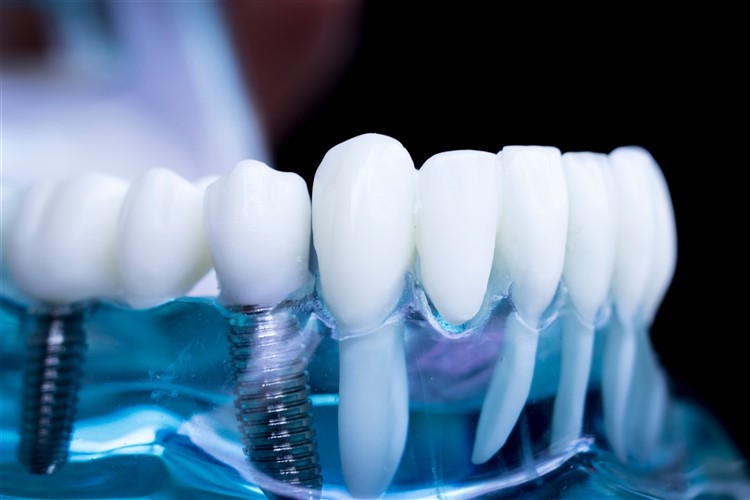
Curious About Dental Implants?
If your dentist has recommended the instalment of one or more dental implants for you or one of your family members, you may have questions. Here is some information to help you get familiar with the use of implants in dentistry, the installation process, and tips to help your dental implant heal following the installment procedure. First, let’s get to know what dental implants are and what is so special about them.
The Value of Dental Implants
The expense of implants varies greatly in Canada, ranging from 1-3 thousand dollars for a single implant or between 25 and 96 thousand for a full restoration. Dental implants are much sturdier than a typical denture or bridge might be, but is that the only reason to justify its expense?
A well supported tooth is only the tip of the iceberg where the benefits of dental implants are concerned. Not only do they look great and last, implants are the reason that many long-term wearers of prosthetic dentures are able to maintain their lower facial structure and profile.
When teeth are removed, changes in the structure of bone and gum tissue begin almost immediately. You see, your teeth serve an important role as signalers to your jaw bone that the bone should continuously remineralize (or regenerate) despite its tendency to resorb to some degree. While we are young, bone regenerates more quickly than it naturally deteriorates, and this becomes less true as we age. The combination of no teeth to naturally stimulate the bone and the natural decline of its regenerative capacity can result in changes so drastic that it becomes difficult to fit a denture properly. In the first year alone, it is not uncommon to see 25% loss of bone tissue. The result, for denture wearers, can be significant degeneration of the jaw bone both in volume and density over time and dentures that aren’t able to be worn properly.
Implant therapy is the answer to bone resorption concerns in many cases. While dentures are only able to exert about 10% of the force required to stimulate the jaw bone, placing just two implants on either side of the mouth can achieve up to 80% bite force on the lower mandible. The result is a profile and structure that is much more likely to retain its structural integrity over time. Whether you are a candidate for this method, referred to as All-on-4, or your dentist has other placements in mind, your jaw will benefit from a permanent implant nearly as much as it would from your natural teeth.
How Implants Are Placed
Implants are placed in two separate procedures. In the first procedure, a false titanium root is drilled and installed into the jaw bone before the gingival layer on top is replaced for healing. Once the titanium rod has had enough time to heal and to bond with the bone tissue, a second appointment sees a dentist attach an abutment to the healed artificial root and joins it to an artificial porcelain tooth.
In this manner, the bone is stimulated with every bite and bite force is evenly distributed across the arch.
Caring For Your Implants After Installation
As you would expect, it may take several days to feel fully recovered from having an implant installed. You can reasonably expect to be in decreasing degrees of discomfort over a period of 10 days. Your dentist will likely provide some pain medication to assist you in managing your discomfort while you heal. It is important to take these medications only as directed. You may choose to use an ice pack to provide relief for the pain and swelling that can occur in the first 3 to 5 days after your procedure. It is important to wait until after the local anesthetic has worn off to begin using ice as the ice pack could cause a frostbite to tissues who aren’t able to sense its temperature. Place the cold pack outside the mouth on the cheeks for up to 20 minutes at a time.
It is important to continue maintaining good oral health, even after a procedure. Use your toothbrush and floss as you normally would to manage plaque bacteria in the mouth, taking care to avoid the area of recovering tissue. Eat cool, soft foods like jello and puddings while your mouth is healing and rinse your mouth gently with a salt water rinse several times a day. Finally, it is important that you rest after a dental procedure to allow your body to focus its efforts on healing. Delay heavy labour or any heavy lifting until your teeth have properly healed.
Once your implants are fully healed, you can return to normal function knowing that your investment in your oral health will support you for years to come.


